Project Name:
iSpeak
Funding Dates:
2010
Status:
Completed
Principal Investigators:
Winston Carlyle Husbands, Fanta Ongoiba
Description:
African, Caribbean and Black (ACB) people account for a disproportionately high share of the numbers of people in Ontario living with HIV. ACB men are particularly affected, accounting for 60% of ACB people infected with HIV up to 2007 (not including ACB men infected through sex with other men)Yet, women and gay and bisexual comprise the majority of ACB service users and others involved in HIV/AIDS issues. In addition, AIDS service organizations, researchers and policy makers have continued to focus their efforts on ACB women and gay and bisexual men. understanding and addressing the HIV-related needs and challenges of heterosexual ACB is an urgent priority.
Purpose and Objectives:
The overall goal of this project is to engage ACB heterosexual men in the response to HIV, and engage service providers and other stakeholders to address the HIV-related needs and circumstances of ACB heterosexual men. The objectives are to: (1) understand the HIV-related needs, challenges and priorities of ACB heterosexual men, and possible strategies to address them; (2) understand the current program environment, identify gaps in the knowledge base, and determine research needs to support programs and policy; (3) develop a research team representing primary stakeholder interests; (4) develop at least one research study to address the most pressing priority; and (5) initiate a process to strengthen program and policy responses related to ACB heterosexual men among ACCHO members
Method:
Focus groups
Population:
ACB Heterosexual Men
Region:
Toronto and London, Ontario
Start and End Date:
2010 - 2011
Results:
Focus group participants articulated their interpretation of ‘heterosexual’ and ‘heterosexual Black man’ in complex ways. On one level, they understood heterosexual men to have sexual relations (and accompanying emotional attachments) with women; for example, heterosexual Black man “means that as a black man, you are only attracted to a woman” (London). But some participants also understood ‘heterosexual’ in opposition to other forms of sexual relationships and sexual orientations, and demarcated a traditional or standard form of heterosexuality. For example, one Toronto participant identified heterosexual men as those who “eat from one plate” rather than trying to unreasonably “eat from different plates” (i.e., having sexual relationships with women and men). Participants generally understood ‘health’ or ‘being healthy’ holistically. Participants in both Toronto and London acknowledged the availability of services that heterosexual Black men may access. Services may be accessible because some service providers make a conscientious effort to reach and engage service users. Focus group participants (particularly those living with HIV) were generally concerned that services were not sufficiently available or accessible to heterosexual Black men. They spoke of a lack of cultural competency which persists because of institutional racism. Participants who were HIV-positive remarked on the sense of exclusion and marginalization that they experienced in the realm of HIV service provision, which they attributed to a peculiar intersection of race, gender and sexual orientation, and a general belief that heterosexual Black men are socially advantaged because of their heterosexuality. Many participants spoke about discussing their health with immediate family (e.g., wives) and trusted friends, and understood this as beneficial to their wellbeing. The participants in one focus group were affiliated with a loosely structured network of HIV-positive men supported by an ASO. The men met from time to time but, unlike a formal support group, they were free to participate in meetings without necessarily committing to a strict regime of attendance. The camaraderie among group members was recognized as a source of strength. Their varied actions and strategies for inserting heterosexual Black men into programs, policy and research were premised on the requirement that those actions and strategies should be championed by an alliance of stakeholders, with PHAs playing a leadership role. Service providers reported that heterosexual Black men were less inclined to access HIV services, compared to Black women and white men. One explanation for this was that HIV is commonly seen by Black men as a ‘gay disease’. Another possible explanation was that Black men cope with vulnerability as solitary individuals. However, one service provider explained that if Black men are disinclined to seek help unless they were in a state of crisis, this was not simply a Black cultural issue.
Project Indicators and Outcomes:
Funding Sources:
CIHR

